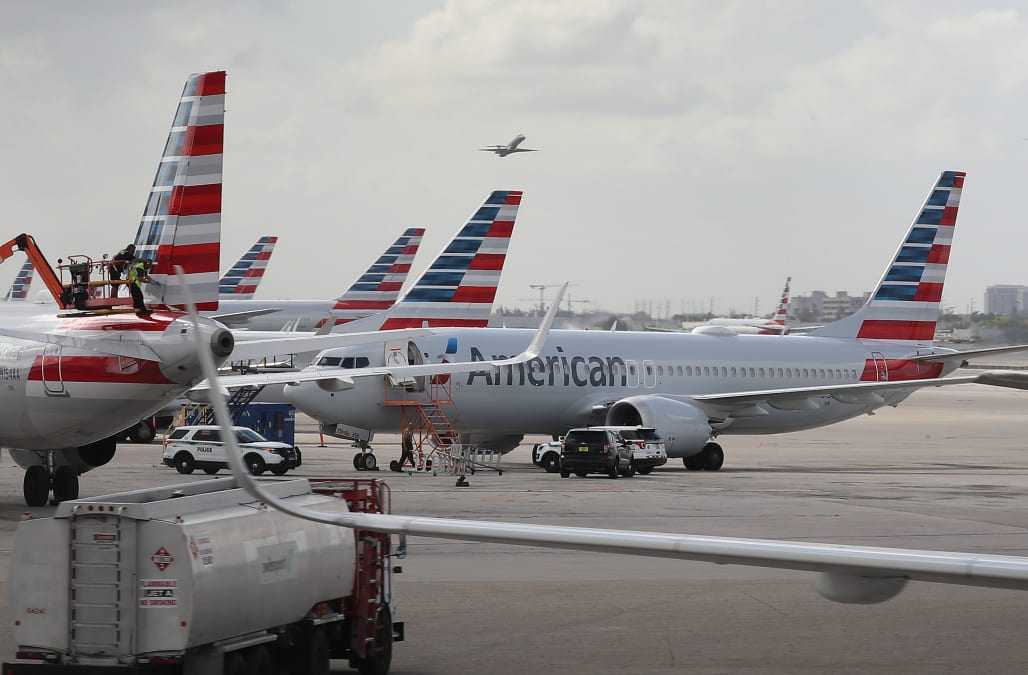
As Boeing continues to struggle to return its embattled 737 Max jets to the skies following two deadly crashes involving the planes, the three big U.S. airlines that operate the Max have canceled thousands of flights ― some stretching deep into the fall.
United Airlines and American Airlines recently announced plans to remove the plane from their schedules through Nov. 3 and Nov. 2, respectively; Southwest Airlines has canceled Max flights through Oct. 1. As The Washington Post noted, hundreds of flights will be impacted daily as a result of these changes.
American Airlines, the world’s largest carrier, said Sunday that it was extending its 737 Max cancellations ― previously scheduled to end in September ― by two months so travelers could “more reliably” book flights through the fall.
The airline said 115 flights per day would be canceled in October and the first two days of November as a result of the change.
“Our [staff] … will continue to work closely with customers who are impacted by these cancellations,” the company said in a press release.
United Airlines made a similar announcement on Friday.
The airline said it was extending the grounding of all of its 737 Max planes by about a month. The extension will reportedly impact some 5,000 United flights through September and October.
Southwest Airlines, the world’s largest Max operator in the United States, told The Verge last week that it will be canceling 150 daily flights until October ― at which point it hopes to bring back its Max fleet.
Southwest customers recently filed a lawsuit against the airline and Boeing, alleging the two companies colluded to hide a fatal design flaw in the Max jet. The claim also accused Southwest of defrauding customers and regulators, as well as its own pilots and employees.
The airline said in a statement that it “vigorously” denied the allegations, which it described as “completely without merit.”
“Safety has always been Southwest’s most important responsibility to both our customers and our employees and we stand ready to fully comply with all requirements to safety return the Max aircraft to service,” a company spokeswoman told the Dallas Morning News.
Other than lawsuits related to the troubled Max jet, of which Boeing is facing several, the planemaker has struggled to fix the plane’s software and engineering problems since the catastrophic Lion Air and Ethiopian Airlines crashes involving the aircraft.
Boeing is preparing to submit a final round of software updates to the Federal Aviation Administration for a flight-control system that played a role in the two crashes. A company representative told the Post that Boeing expects to hand over all of its required updates to the FAA by the end of September ― which could mean the jets’ return to the skies by November.
The Wall Street Journal reported on Sunday, however, that January 2020 may be a more realistic estimate of when the grounding of the plane could be lifted.
The FAA has refused to offer even an estimate of when it may greenlight the Max.
“The FAA is following a thorough process, not a prescribed timeline, for returning the Boeing 737 Max to passenger service,” FAA spokesman Lynn Lunsford told the Post on Sunday. “The FAA will lift the aircraft’s prohibition order when we deem it is safe to do so.”



